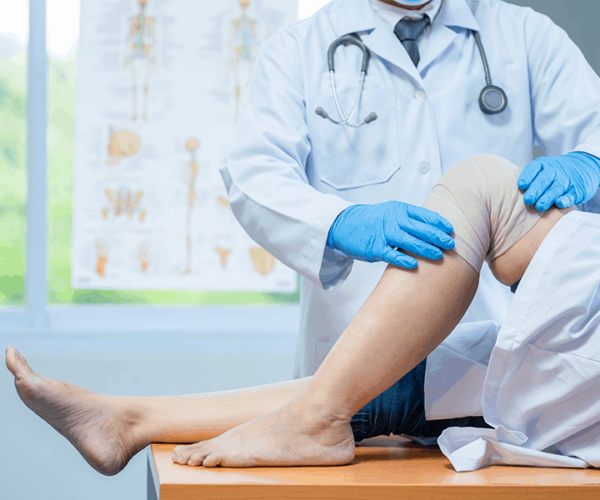Are you experiencing discomfort, pain, and reduced range of motion in your upper extremities? If yes, the experience can be a nightmare for your wellness. The upper extremities provide stability, facilitate fluid movement and maintain tone. When these joints, including the arm, hand, shoulder, elbow, and wrist, are injured, it becomes hard to carry out activities. Fortunately, orthopedic extremity surgeon Dr. Kristopher L. Downing has helped several individuals with treatments to eliminate upper extremity concerns. You should see an orthopedic hand and upper extremity surgeon in the following situations.
You Have Tendonitis
Tendonitis is a common inflammatory condition that affects the tendons. Overuse, injury, and diseases like diabetes and arthritis are responsible for tendonitis in your hand. These concerns can affect your overall well-being, so you need to seek treatment. An orthopedic hand surgeon can utilize several treatment options to lower inflammation and pain, including braces, medication, cortisone injections, and physical therapy.
Struggling With Hand and Wrist Fractures
Hand and wrist fractures are common injuries involving one or more cracks of your bone in the wrist. These injuries happen when you try to catch yourself during a fall on an outstretched hand. Participating in sports like snowboarding and skating increases your risk of hand and wrist bone fractures. You should see an orthopedic surgeon immediately because untreated fractures may not heal properly, limiting your ability to carry out activities.
Elbow Ligament and Tendon Tears
Overuse from sports such as baseball, tennis, golf, or activities that require swinging is mainly responsible for most ligament and tendon tears. Furthermore, traumatic injuries, including unexpected blows, can tear your ligament or tendon. However, your orthopedic surgeon can evaluate the root of your pain and develop a plan to assist your return to your favorite activity. The provider can recommend surgery if your ligament or tendon is severely damaged.
Rotator Cuff Injuries
The rotator cuff comprises tendons and muscles which hold your shoulder properly. When the rotator cuff is injured, carrying objects on your shoulder becomes extremely hard. Your orthopedic surgeon might recommend physical therapy exercises to boost flexibility and muscle strength near the shoulder joint. Alternatively, your surgeon can provide surgery if your rotator cuff injury is severe.
Osteoarthritis
Arthritis is a common condition that can affect all your joints. Osteoarthritis causes wear and tear in your smooth cartilage and can cause swelling, pain, and stiffness. An orthopedic surgeon can diagnose osteoarthritis and provide the most effective treatment, including surgery, anti-inflammatory medication, and injections. Thus, when you have osteoarthritis in your wrist, arm, shoulder, and hand, you should immediately see an upper extremity surgeon.
Dislocation
Dislocation is a common issue affecting your body’s largest joints. Shoulder dislocation is a common injury among adults, while elbow dislocation is common among kids. Your fingers are at increased risk of dislocation if you forcefully bend them incorrectly. The injury deforms and immobilizes your joints leading to unexpected severe swelling and pain. Your orthopedic can successfully offer treatment to return your bones to their proper positions.
The upper extremities prove integral in enabling you to carry out daily activities, including playing, carrying objects, and lifting. If one of its components is injured, doing even the slightest action becomes challenging. Therefore, if you are experiencing pain, swelling, discomfort, or reduced mobility, it is high time to see an upper extremity surgeon. Your surgeon can evaluate the causes of the pain and swelling and determine if you need surgical or non-surgical treatment.




